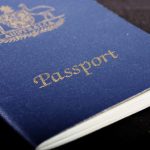Our Services
Accessing Voluntary Assisted Dying in Victoria
This is a simplified, and therefore incomplete summary of the steps involved in preparing for, and accessing, VAD.
The information we have provided here comes from the Victorian Department of Health website and the Better Health Channel. More definitive and comprehensive information is available on these websites.
You will also find some additional information on our Your Questions Answered page and our Information for Consumers and Caregivers page.
We also provide some VAD information in other languages.
What is voluntary assisted dying?
 Voluntary assisted dying:
Voluntary assisted dying:
- means administering a medication for the purpose of causing death in accordance with the steps and process set out in law.
- must be voluntary and initiated by the person themselves and is usually self- administered. Only those who are already dying from an incurable, advanced and progressive disease, illness, or medical condition can access voluntary assisted dying.
- is only for those who face an inevitable, imminent death because of an incurable disease, illness, or medical condition.
Initial self-assessment

People can only access voluntary assisted dying if they meet all the following conditions:
- They must have an advanced disease that will cause their death and that is:
- likely to cause their death within six months (or within 12 months for neurodegenerative diseases like motor neurone disease) and
- causing the person suffering that is unacceptable to them.
- They must have the ability to make and communicate a decision about voluntary assisted dying throughout the formal request process.
- They must also:
- be an adult 18 years or over; and
- have been living in Victoria for at least 12 months; and
- be an Australian citizen or hold a permanent residency visa.
Prepare documents
Collect the documents that prove the three conditions in 3. above, such as, but not limited to:
- Australian driver’s licence or birth certificate
- Utility bill or phone account, showing your address and a date of 12 months ago or more
- Australian passport, citizenship certificate or permanent residency document It is best to have these in place early.
Initial discussion with medical practitioner (“Coordinating medical practitioner”)

You will need to ask any general practitioners (GPs) or specialists you consult, if they have done the required training that authorises them to assist you with voluntary assisted dying. If they are not authorised, you will need to find ones who are. Contact the State-wide VAD Navigator Service if your doctor is unable to refer you. Its website advises that the navigator service may provide:
- general information about voluntary assisted dying in Victoria
- individualised support and information, either in a face-to-face consultation or by post
- assistance in connecting people with appropriate medical practitioners and health services
- information about or access to voluntary assisted dying support packages
- holistic advice and follow-up on appropriate end-of-life care services
- education to health services and health practitioners.
The care navigators can be contacted during business hours from anywhere in Victoria by the following methods:
Phone: (03) 8559 5823
Mobile: 0436 848 344
Email: vadcarenavigator@petermac.org
Your doctor, or another suitably trained and authorised doctor, will assess your medical status (see 1. and 2. above) and administrative status (see 3. above) to see if you comply with the requirements of the Victorian Voluntary Assisted Dying Act 2017.
Consultation with a specialist (“Consulting medical practitioner”)
Medical practitioners with expertise and experience in your disease, usually specialists, will need to be approached to confirm your prognosis (see 1. and 2. above).
Again, they will need to have completed the specific training required and be qualified to participate in voluntary assisted dying.
Written request for voluntary assisted dying

- specify that the person—
- makes the declaration voluntarily and without coercion; and
- understands the nature and the effect of the declaration being made
- be signed by the person making the declaration in the presence of 2 witnesses and the co-ordinating medical practitioner.
If you cannot arrange the two witnesses yourself, you may ask if DWDV can assist.
Further detail concerning witnessing, including cases where the person is unable to sign a written declaration is detailed in the above Act.
Authority to dispense voluntary assisted dying medication
Once satisfied that all the required conditions for voluntary assisted dying are met, your Coordinating medical practitioner, will seek approval from the Health Department for a permit to obtain the required medication.
Delivery of medication and instruction on how to use
Once satisfied that all the required conditions for voluntary assisted dying are met, your Coordinating medical practitioner, will seek approval from the Health Department for a permit to obtain the required medication.
Additional Information
For answers to the following questions and more, see our FAQs page:
- What if I cannot find a doctor to assist me?
- When should I start seeking assisted dying?
- Is there anything I can do to assist in the successful implementation of VAD?
If you are distressed by any material on this site or need additional support, contact:
Lifeline 13 11 14 || Beyond Blue 1300 22 46 36 || Griefline 1300 845 745 || MensLine Australia 1300 789 978
